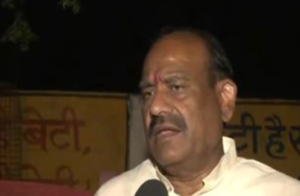New Delhi [India], January 24 (ANI): Technology has become a powerful tool in the legal system, improving efficiency, accessibility, and accuracy in the administration of justice, says Chief Justice of India Dr DY Chandrachud while inaugurating Online e-Inspection Software of High Court of Delhi on Tuesday.
CJI said, the success of any initiative and innovation, whether in law or technology, depends on the ability to collaborate with stakeholders and incorporate critical feedback from those who will be using it.
The Supreme Court had recently organized a pilot hackathon to explore practical propositions for bringing in efficiency in the existing process from ‘filing to listing’ of judicial matters, and in the process facilitate the participatory design. The next step is for the Supreme Court to organise Hackathon 2.0, which would be open for everyone to participate, said CJI.
Justice DY Chanderchud also added that the judiciary has the unenviable task of delivering justice in a period of both challenges and groundbreaking opportunities. The IT revolution constitutes a resource which has changed the way we work together and envisages the justice delivery mechanism. Technological innovations by the judicial system should be designed to meet the needs of all its users — judges, court staff, lawyers, litigants, self-represented litigants, community leaders, researchers, and the public at large.
The Delhi High Court has been at the forefront of modernising courts in the country through the role of information technology. In fact, the first paperless e-court in the country was established in Delhi itself, back in 2009. All the courts of Delhi High Court can now function as e-Courts and have been conducting their court proceedings through video conference, in addition to physical hearings from time to time. Initiatives such as online e-filing system, web links dedicated to the mentioning of urgent matters, digitised case records, video conferencing system –have enhanced the robustness of a sustainable future court system prevailing in the Delhi High Court.
A feedback loop enables us to continually improve technology to better serve the administration of justice. An agile approach to piloting and implementing new e-services, which involves a willingness to test, take feedback, adapt and change would go a long way. Helpful feedback from the community allowed the IT Committee of the Delhi High Court to address the specific needs of judicial officials, court staff, and legal professionals and issues that arose during the implementation of the former e-inspection software, Justice Chandrachud said.
Online e-inspection software is a step in the right direction of a sustainable transformation of our justice delivery system. The next step would be taking this initiative forward and implementing it at the district courts. The district judiciary plays a crucial role in ensuring access to justice for citizens at the grassroots level. E-inspection of judicial records at the district level would reduce our dependence on physical document handling and would allow us to move beyond the constraints of space.
It is essential to ensure that such online services are compatible with most used browsers, and screen-reading software, can be operated with ease on mobiles or devices with low bandwidth, and most importantly do not contribute in the digital divide. We must ensure that principles of procedural and substantive fairness, due process, transparency and equal access are made integral to the process of adoption of new technologies, Justice DY Chanderchud added in this speech. (ANI)








